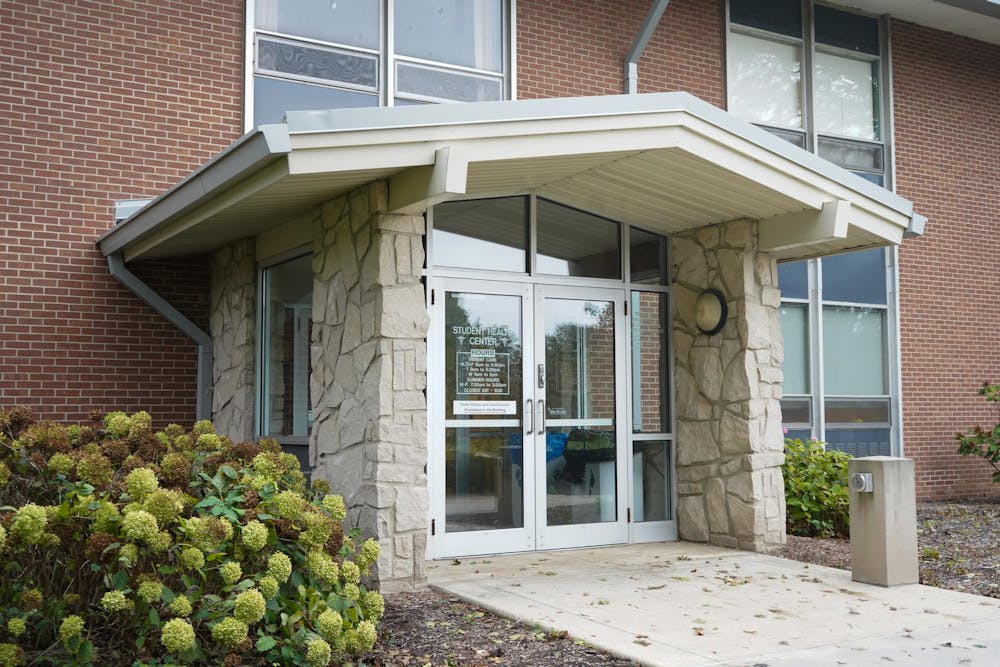As young adults with relatively newfound freedom, it’s a given that many students are sexually active on college campuses. Therefore, ensuring safety and keeping students sexually healthy is focused on encouraging protection over prevention.
Sexually transmitted infections (STI) are preventable when engaging in casual sex with the use of protection, like condoms, dental dams and vaccinations, according to Mayo Clinic. The National Library of Medicine warns college students to be cautious.
According to the National Library of Medicine, 62 percent of young adults report condom usage outside of a committed relationship, and 19 percent report using one in an established relationship.
They also said STIs would be close to zero if those in committed relationships could ensure monogamy, but “rates of concurrent partnerships among those who indicate that they are in a committed relationship are high among college students.”
The Ball State Student Health Center provides STI testing for students for a fee depending on the test, but once each semester, it partners with the Wayne County Health Department to provide students with free screenings.
Students are able to be tested for HIV, hepatitis C, gonorrhea, chlamydia and syphilis. Free tests are provided on a walk-in basis and don't require insurance.
With this semester’s free-testing day coming up Oct. 17, Ball State’s student health center staff encourages students to stop by anytime from 10 a.m. to 4 p.m.
Suzanne Swierc, Ball State’s director of Health Promotion and Advocacy, said students just have to come to the health center and ask for an intake form to get started.
She said the process depends on the test the student needs. Generally, staff from the Wayne County Health Department set up in the health center on free testing days and call students back when it’s their turn. They have a quick conversation with the student to figure out what they need to be tested for. The test can include a blood or urine sample or a swab of any potentially infected areas.
It can take up to a week to receive results, depending on the test, and the health department will contact the student with the results. If students need treatment, they also work with them to call a prescription into a pharmacy or talk them through the next steps, Swierc said.
Swierc said the Office of Health Promotion and Advocacy works with the health center to keep a record of STI tests conducted on campus.
Of those who received an STI test at Ball State’s student health center in 2023, the most common was chlamydia with 15 percent of tests coming back positive. Syphilis had a positive rate of 2.5 percent, and gonorrhea was 2 percent. Swierc emphasized that all three of these are bacterial infections that can typically be treated with antibiotics.
Many symptoms can go unnoticed, and Swierc said without a test, some can go years without receiving treatment. Others avoid screenings due to the stigma associated with STIs.
According to Planned Parenthood, Chrissy Cmorik, the senior director of education for Planned Parenthood of the Pacific Southwest, said reducing any perception of judgment surrounding the topic is important.
“What leads[s] instead is a conversation stressing the importance of knowing your own body — what’s normal for you — so you can recognize any changes and treat them early. By destigmatizing the conversation, we can destigmatize the treatment,” Cmorik said on Planned Parenthood’s website.
Chadwick Menning is the department chair for Ball State’s Department of Sociology. His areas of interest are family, social inequality and quantitative methods.
“It is important not to catastrophize or to single out college student behavior. There is a wide variety in how students approach their sex lives — with some being quite safe,” Menning said via email.
Menning also wants students to understand that STI testing doesn’t only benefit your life but the lives of others, even when receiving a negative result.
“Getting tested can provide you with greater peace of mind. It might also be considered part of your own self-care, as well as an important facet of being responsible to your partner or partners,” Menning said.
Swierc also recognizes a barrier between students and their sexual health. She said some students avoid testing due to lack of insurance or being on their parent's insurance, so she hopes the free testing days remove that barrier.
“We recognize that students either potentially are underinsured or uninsured, or if a student is on their parent’s insurance, they may not want to get tested using their parent's insurance and have to disclose their sexual activity to their parents,” Swierc said. “If we are able to provide the opportunity to get tested at low to no cost, then that can help students take care of themselves [and] each other.”
Swierc said the language surrounding STIs is also important. Some health care professionals and educators feel using the term STI instead of STD is “more accurate and less stigmatizing,” according to Planned Parenthood.
“Sometimes, the term disease can be a little intimidating as well, and we want to make sure that, especially students on a college campus, but in general, everybody is aware that all STIs are treatable. Many of them are curable, and the only way to know if you have one and to be able to get treated is to get tested,” Swierc said.
Contact Ella Howell via email at ella.howell@bsu.edu.





The Daily News welcomes thoughtful discussion on all of our stories, but please keep comments civil and on-topic. Read our full guidelines here.